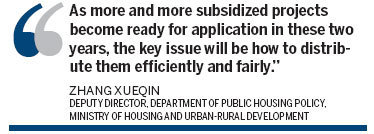The Pros and Cons of FHA Loans: A Comprehensive Guide for Homebuyers
#### Pros and Cons FHA LoanFHA loans, or Federal Housing Administration loans, are a popular choice for many homebuyers, particularly first-time buyers. Und……
#### Pros and Cons FHA Loan
FHA loans, or Federal Housing Administration loans, are a popular choice for many homebuyers, particularly first-time buyers. Understanding the pros and cons of FHA loans can help you make an informed decision about whether this financing option is right for you.
#### Pros of FHA Loans
1. **Lower Down Payment Requirements**: One of the most significant advantages of FHA loans is the lower down payment requirement. Borrowers can secure an FHA loan with as little as 3.5% down, making homeownership more accessible for those who may not have substantial savings.
2. **Flexible Credit Score Standards**: FHA loans are known for their more lenient credit score requirements. While conventional loans often require a credit score of 620 or higher, FHA loans may allow borrowers with scores as low as 580 to qualify. This can be particularly beneficial for individuals with less-than-perfect credit histories.

3. **Higher Debt-to-Income Ratios Allowed**: FHA loans allow for higher debt-to-income (DTI) ratios compared to conventional loans. This means that borrowers can have a larger amount of existing debt relative to their income, making it easier to qualify for a mortgage.
4. **Assumable Loans**: FHA loans are assumable, meaning that if you sell your home, the buyer can take over your existing loan under its current terms. This can be an attractive selling point, especially in a rising interest rate environment.
5. **Access to Additional Assistance Programs**: FHA loans are often linked with various assistance programs designed to help first-time homebuyers. These programs can provide additional financial support, such as down payment assistance or grants.
#### Cons of FHA Loans

1. **Mortgage Insurance Premiums**: One of the major drawbacks of FHA loans is the requirement for mortgage insurance premiums (MIP). Borrowers must pay an upfront premium as well as monthly premiums for the life of the loan, which can add significantly to the overall cost of the mortgage.
2. **Property Standards**: FHA loans require homes to meet certain safety and livability standards. This means that if you're purchasing a fixer-upper or a home that needs significant repairs, you may have difficulty securing financing through an FHA loan.
3. **Loan Limits**: FHA loans come with specific loan limits that vary by region. In high-cost areas, these limits may not be sufficient to purchase the desired property, which could force buyers to seek alternative financing options.
4. **Longer Closing Times**: The process of obtaining an FHA loan can sometimes take longer than conventional loans due to additional paperwork and requirements. This can be a disadvantage for buyers looking to close quickly on a property.

5. **Less Competitive in Bidding Wars**: In a competitive real estate market, sellers may prefer conventional loans over FHA loans due to the perception that FHA loans are more complicated or less reliable. This could put FHA borrowers at a disadvantage when making offers on homes.
### Conclusion
In summary, FHA loans offer several benefits, including lower down payment requirements and more flexible credit standards, making them an attractive option for many homebuyers. However, potential borrowers should also consider the downsides, such as mortgage insurance premiums and property standards. By weighing the pros and cons of FHA loans carefully, you can determine whether this financing option aligns with your financial situation and homeownership goals.